
臺灣非營利專業書評媒體。Openbook編輯部將提供原生報導,文化觀察,人物採訪與國內外重大出版消息。 https://linktr.ee/openbooktaiwan
"Live" "To Draw a Blueprint for Taipei's Literature - A Hundred Cultural Persons' Proposals for Urban Affairs" Event Side Notes
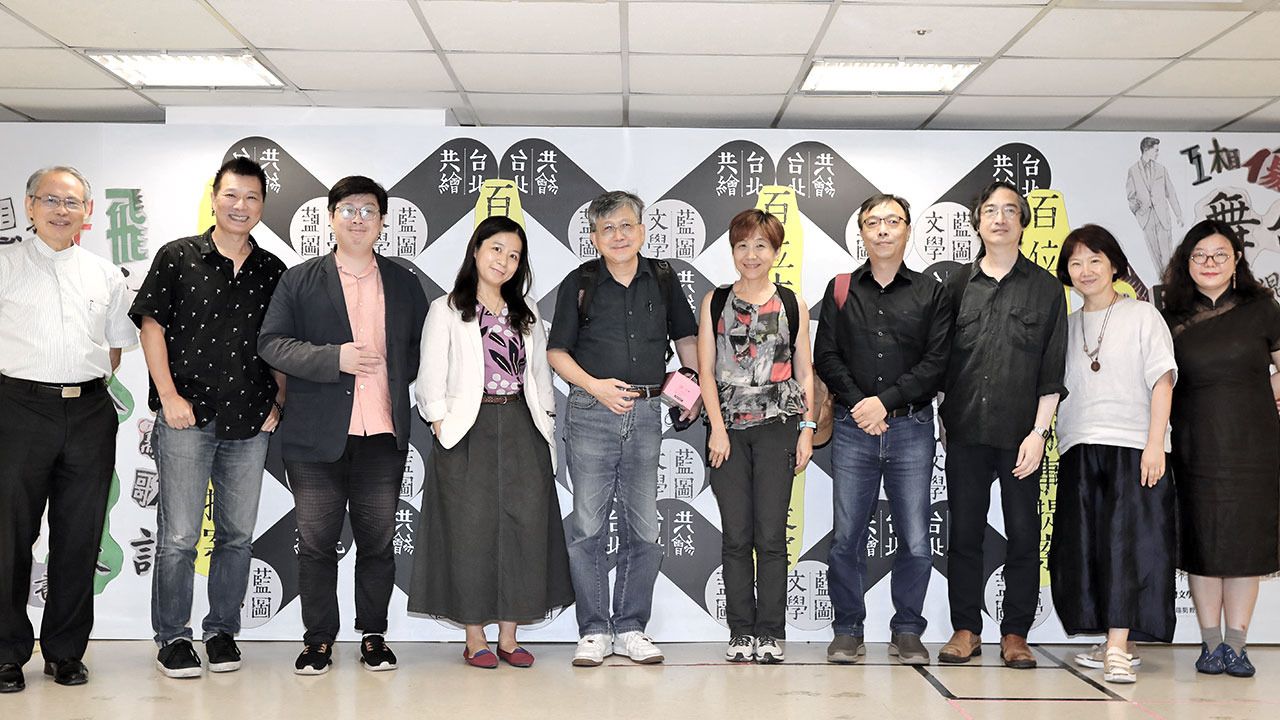
Photography: Yu Zhixu / Side Notes: Jiang Yixuan
After the establishment of the "Taipei Literature Museum" preparatory office, what kind of cultural vision has been drawn for the future? In late June, "Wenxun", with the theme of "Drawing the Blueprint of Taipei Literature", was divided into two activities in the afternoon and evening, inviting cultural people to describe the city affairs and cultural proposals in their hearts. Including Li Youcheng, Hong Aizhu, Zhang Zheng, Zhang Guixing, Chen Yuhong, Chen Guowei, Chen Zhide, Yang Jiaxian, Yang Zonghan, Liao Renyi, Liao Zhenfu, Liao Weitang, Lu Qiang, Cai Sufen, Cai Deng, Cai Shiping, Deng Xiaohua, Han Liangyi, Xiaoxiangshen, Gu Yuling and others , were invited to talk about the imagination and practice of the Taipei Literature Museum.
➤A castle in the sky, a collection on the ground: The Literature Museum is a space like a treasure
Regarding the imagination of the "space" of the Literature Museum, Hong Aizhu, a writer who is engaged in design, hopes that the future Taipei Literature Museum will be like a "treasure" space from the perspective of literary readers: "The Taipei Literature Museum I imagine is not only a collection, if it can be A comfortable venue will attract all people." Hong Aizhu smiled, full of reverie about the vision of the Literature Museum.
Poet Chen Yuhong is also a translator. She believes that the future of the Taipei Literature Museum requires mutual translation between Chinese and foreign languages, and planning international discussions. Only then can Chinese literature go out of the Chinese-speaking circle. She also expressed her ideals for the space of the museum: "In my imagination, the Taipei Literature Museum is an intermediary point between the community and the National Library. The scale exceeds the community, and the tolerance exceeds the country." The host Yang Zonghan responded, and Chen Yuhong took us Going beyond the imagination of the Chinese language circle, if the Taipei Literature Museum has a complete collection space, translation works should be considered for collection.
MCA writer Zhang Guixing took the Haruki Murakami Literature Museum as an example. Murakami translated his own works and donated his vinyl records. There are also social rooms and coffee shops in the museum. Starting from the Literature Museum helps to understand what the writer really wants to express: "To understand a writer, read his works, the writer goes out of literature to face the readers, and the Literature Museum is the place where the writer meets the people face to face." , the Literature Museum is a place to think about literary creation and the future.
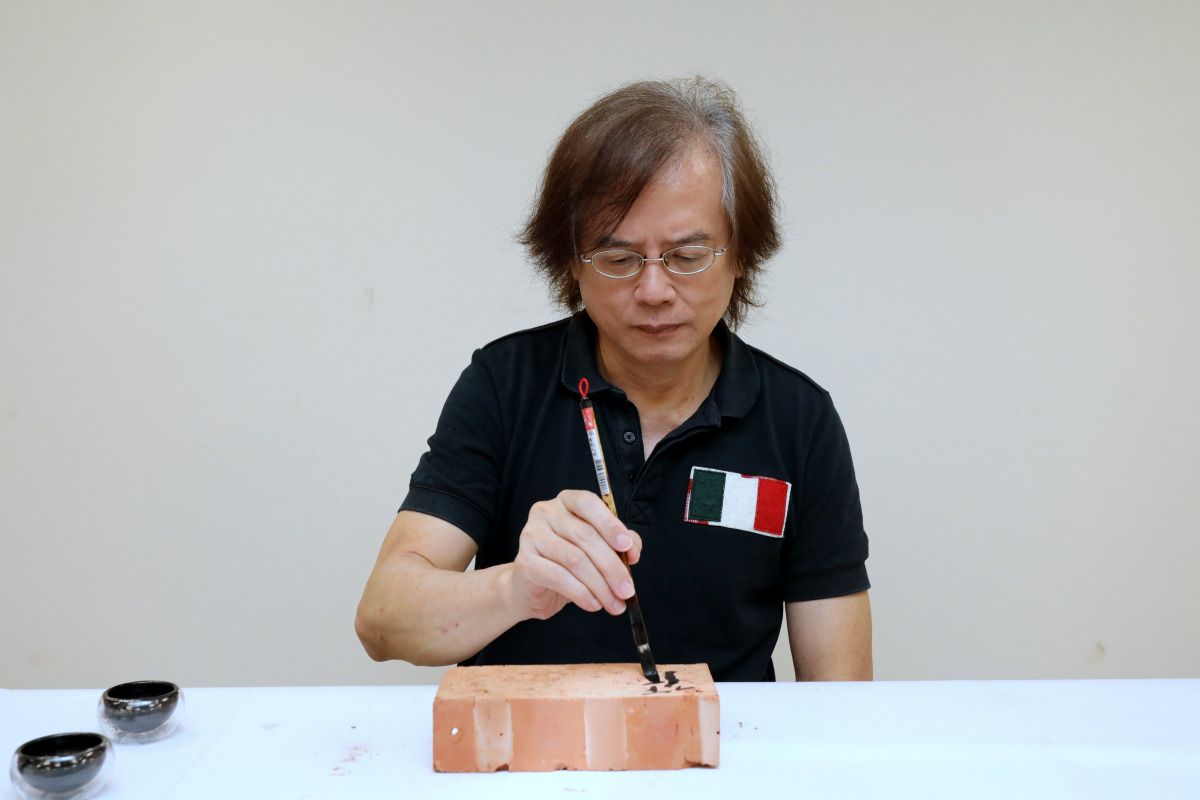
"A castle in the sky, local literature, may the blessings be good, and the inspiration will be endless." Hong Kong writer Liao Weitang hopes that the Taipei Literature Museum can shoulder the responsibility of inheritance. Liao Weitang established the "Hong Kong Literary Life Museum" 10 years ago with novelist Dong Qizhang and poet Deng Xiaohua. Looking forward to the Taipei Literature Museum, Liao Weitang believes that the Literature Museum should remind people who come into contact with contemporary literature: "To feel the beauty of uselessness." And call for respect for those small and marginal literary works.
Having written Taiwanese veterans and local novels, this is what Lü Qiang sees in Taipei: "Taipei is an open city without walls, and it is very inclusive." Taipei is also local and international, and young people are chasing their dreams. the palace. "The Taipei Literature Museum is a treasure trove that contains all blood and tears." It is the world and international Taipei.
➤The trend is going, and culture must be: Reflecting on historical positioning from literature
Chen Guowei, a professor at the Institute of Taiwanese Literature at Chung Hsing University, pays attention to Taipei's long colonial and cross-cultural history: "Literature records the four seasons of the city, such as Zhu Dianren's "Autumn Letters", Bai Xianyong's "Taipei People", Wu Mingyi's "The Magician on the Flyover", etc. Through writers Works, you can feel the voice and memory, good writers master the daily life of the city, and really shape the character of a city." Chen Guowei expects the Taipei Literature Museum to inherit the memory of this era, interact with the local, and become a communication with the people. bridge.
Han Liangyi talked about his sister's reading experience: "I saw a copy of "Taipei People" on my sister's bookshelf, and later read Huang Chunming's "Days of Watching the Sea." When I was a child, diagonally across from the house was the call girl's dormitory. , At that time, it was inevitable to look at them with different eyes, but after reading these works, I had an imagination and understanding of their lives. Compared with a bookstore, a literature museum is a place where you can look back on the past and look forward to the future. Han Liangyi is convinced that the Taipei Literature Museum will be a good venue to make the status of Taipei's history more clear.
"Literature is related to life experience, and it is integrated with the land we live in." Literature and history are inextricably linked. Fantasy novelist Xiaoxiang Shen juxtaposes literature and history to provide more space for imagination. Once literature and history part ways, the possibility of reflection through literature is lost. The God of Xiaoxiang hopes to give the city a new image through fantasy novels, against the historical thinking under the flat frame, so that literature can show the perspective of history and rethink its place in history.
Writer Gu Yuling continued the themes of "locality" and "history", reminding future literature museums that locality is an important concept, but boundaries should be fluid. Outside the locality, the Literature Museum is responsible for multiple histories. Each version of oral memory is a reaction to the violence of a single history: "Those contradictory memories are the real history, and a single history is often suspicious." The power of history is described by Gu Yuling as a "weapon", which is a kind of "spontaneous folk spirit".
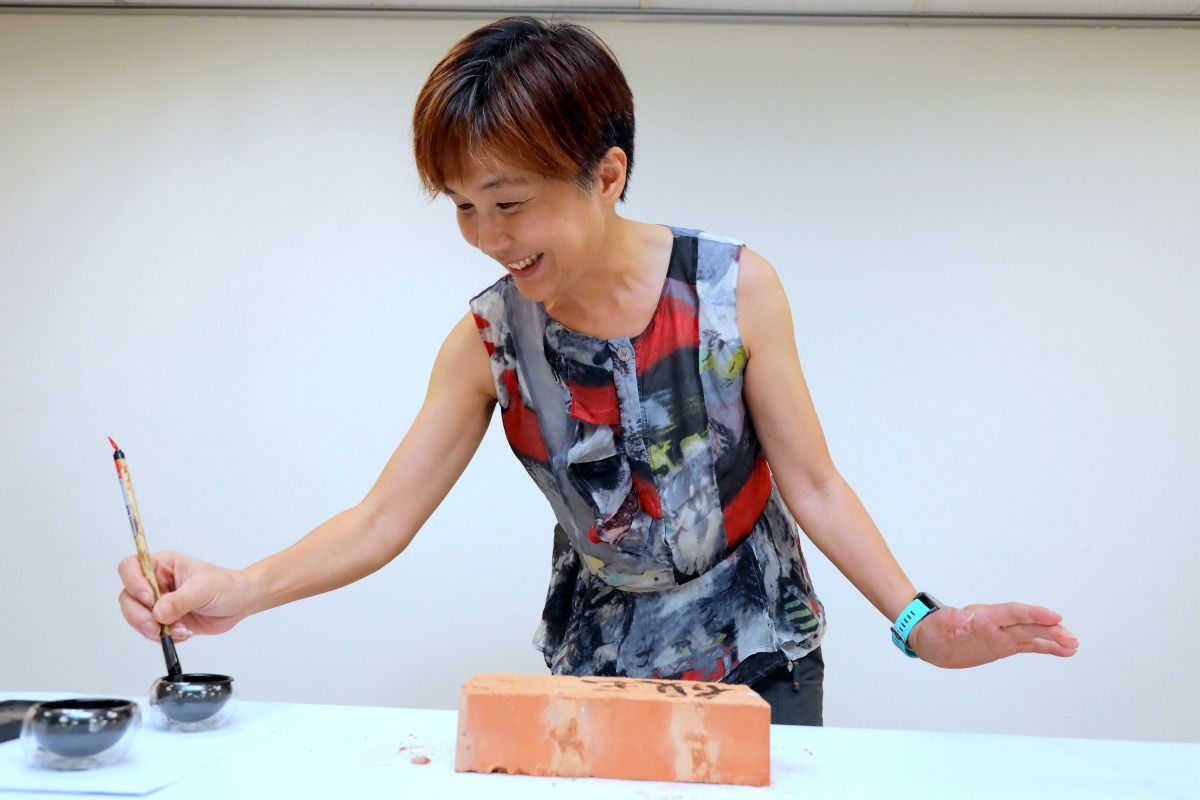
Yang Jiaxian, an associate professor and poet in the Chinese Department of Qing University, specializes in early Shanghai literature. In the past, she had to read publications from 100 years ago, but now she has a database for retrieval. "When I inspect it, I feel that this should not be the essence of culture, but thanks to technology." Tradition is the foundation, and we know how technology is read. The same is true for the future literature museum, which must have a traditional foundation and technology as a prospect. Yang Jiaxian then took Kizhouan as an example, reminding that under the trend of the times, what format should the Taipei Literature Museum want to collect? How to activate literary media? Worth pondering.
➤Go out of the place, let Chinese sail to the world
Professor Li Youcheng, who used to work at the Academia Sinica, mentioned that there are Chinese children from all over the world, and each body is its own carrier, inheriting the Chinese blood and unique cultural background. "I hope that the Taipei Literature Museum will develop into the center of Chinese literature." "Wenxun" has long run a literature and art information center. If the Taipei Literature Museum can continue to develop these achievements in the future, it will have the opportunity to become an important center for the study of Chinese literature in the world.
Zhang Zheng, the founder of "Bright Time Bookstore", mentioned that he visited a second-hand bookstore during a self-guided trip in Laos and naturally wanted to bargain the price. The boss said, "If you really need this book, you shouldn't bargain, because knowledge is priceless. "Zhang Zheng opened a bookstore, which was greatly influenced by him. "What I want to talk about is that Taiwan should be the most free reading space in the Chinese-speaking world. Can we further become the world's most prosperous non-Chinese publishing environment?" There are about one million new immigrants today, and it is very difficult to step out of the Chinese-speaking circle. Prospective reminder.
Chen Zhide, a Hong Kong writer whose pen name is Chen Wei, remembered that he visited a second-hand bookstore in Hong Kong when he was in middle school and saw Taiwan literature books, so he decided to save a little pocket money every month. .” He was immersed in nostalgia, and spit out emotionally: “With their books, I feel that I can go home.” Having encountered Taiwanese literature for a period of time, Chen Zhide deeply hopes that the Taipei Literature Museum can become an art museum. The writer's home.
"Because it has its own will and ideas, it is so difficult for the people to spontaneously develop the spirit." Deng Xiaohua, a Hong Kong writer, believes that Taiwan has an open mind to accommodate dissidents, and those marginal and unknown literatures can be given due attention. "Taipei Literature Museum is a city's literature museum. This kind of marginal and borderline can be done a little more, and it can better show the spirit of the people." Taking the example of the Hong Kong Literature Life Museum, we expect that Taipei will not only emphasize the spirit of the individual, but also It can also break through the boundaries of Chinese literature.
Cai Danden, who studies literary historical materials and images, aside from the video major, his main field is modern literature: "My positioning of the Taipei Literature Museum is local, it will not be able to get rid of Taipei's regional nouns, but I want to have Chinese people in mind. The center of literature is also what I have dreamed of for 40 years.” The writers have put forward high expectations for Taipei, and Taipei still has a long way to go from local to international.
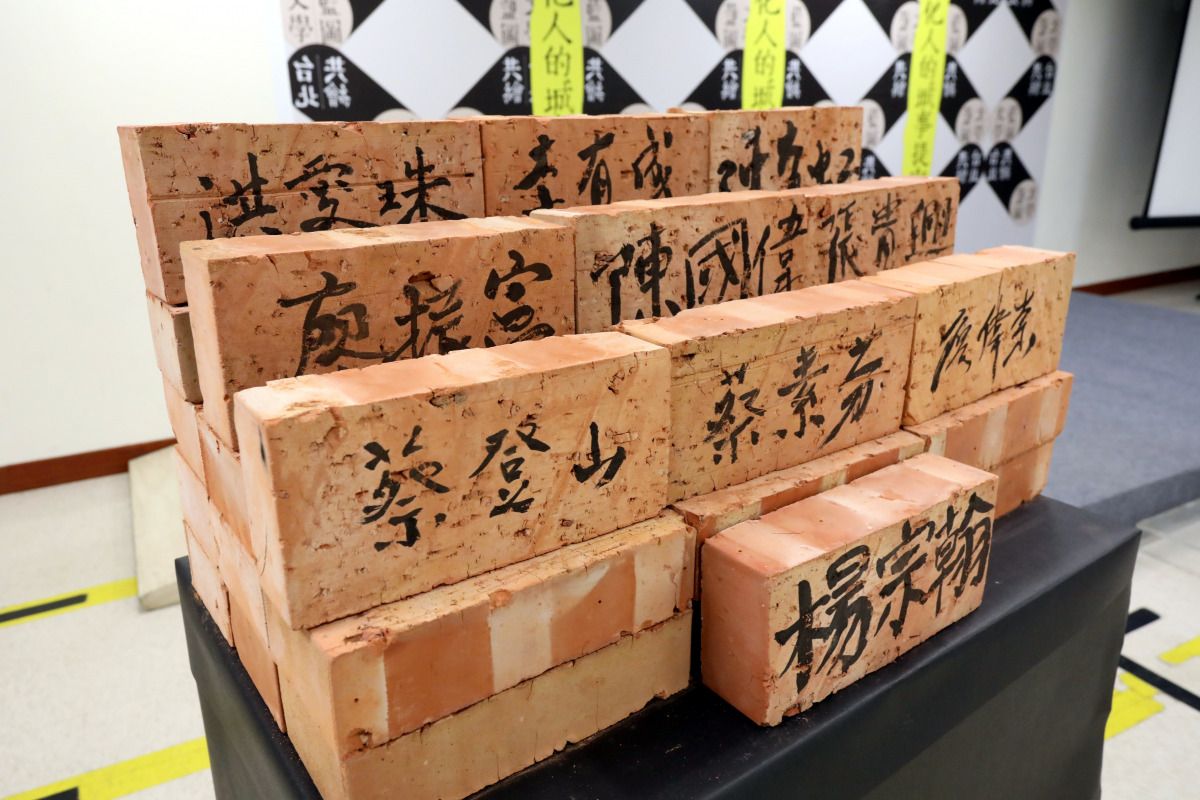
➤ It's not that simple! The real dilemma of the literature museum
"I am very pragmatic to say that everyone's expectations and imaginations will be difficult to implement if there is no stable plan and funding." Liao Zhenfu, the former director of the Taiwan Literature Museum, said earnestly. He has a wealth of practical experience, and actively raised several practical questions: If the politics is changed, will there be a gap in funding? Manuscript preservation requires constant temperature and humidity. Is there such a condition in Taipei? All of these are rooted in the imaginary blueprint and must be firmly established.
Cai Sufen, a writer and deputy editor-in-chief of the "Freedom Times", said that the total cost of the Taipei Performing Arts Center's opening, from planning to completion, was 6.6 billion. "What about literature? You can create with just one pen and one piece of paper. It may be too 'cheap' for everyone." The huge funding gap makes people shake their heads. No matter how many things we can do, we need an atmosphere of literature and art, and we must pay equal attention to painting and performance. "Only when it is integrated into the daily life of the people can it be truly done well." Yang Zonghan, the host of the lunchtime session, quoted a report by China Times on January 16, 2013 that the city government said that it expected to set up the Taipei Literature Museum at a cost of 330 million. Even in a 2012 survey of writers in Taipei, more than 80 percent were in favor of the establishment. It is now 2022, but the Literature Museum has just begun preparations, and the process is much behind. So what we need is to do things effectively, long-term, and deeply. He said that "the house is hopeful, and the fire is not extinguished." He hoped that it would not disappear after the excitement was over, and only the strength of unity could push literature forward.
Liao Renyi, director of the National Taiwan Museum of Fine Arts, has expertise in aesthetics and museology. Although he is not a full-time creator, he is a key figure in maintaining art collections. He reminded that what is on display in the museum is by no means dead, and that art cannot just satisfy the vision, but allow people to enter that environment. "Everyone is literature and artists, and I will be the preserver of the backstage." The Literature Museum is a face-to-face venue for writers, and it is also an ideal place for Liao Renyi to actively guard.
Well-known host Cai Shiping has a lot of imagination about Taipei, and frankly said that the cultural people present were very brilliant, and also put forward many practical insights, "but it is very troublesome for the preparation office." How to come up with the idea of landing in the imagination? Cai Shiping proposed the concepts of "convergence" and "metaverse". The preparatory team of the Literature Museum can negotiate with high-tech companies, and may get a lot of ideas.
➤From Lin Haiyin's living room to a literature museum
The evening host Yang Jiaxian mentioned: "Lin Haiyin's living room has a deep adhesion to the entire Taiwanese literature. I hope the Taipei Literature Museum can be like another 'Lin Haiyin's living room'." Mr. Lin often entertains literati in his living room. "Half of Taiwan's literary world" reputation. Cultural people say that they are the beneficiaries of literature, but in fact they are also important people who bring history into literature. They hope that the Taipei Literature Museum will continue the "Lin Haiyin Living Room" and make the literary salon revival. The other side of the world, and the world is also gently knocking on the door outside the city through the introduction of cultural people. ●( The original text was first published on the OPENBOOK official website on 2022-07-24)
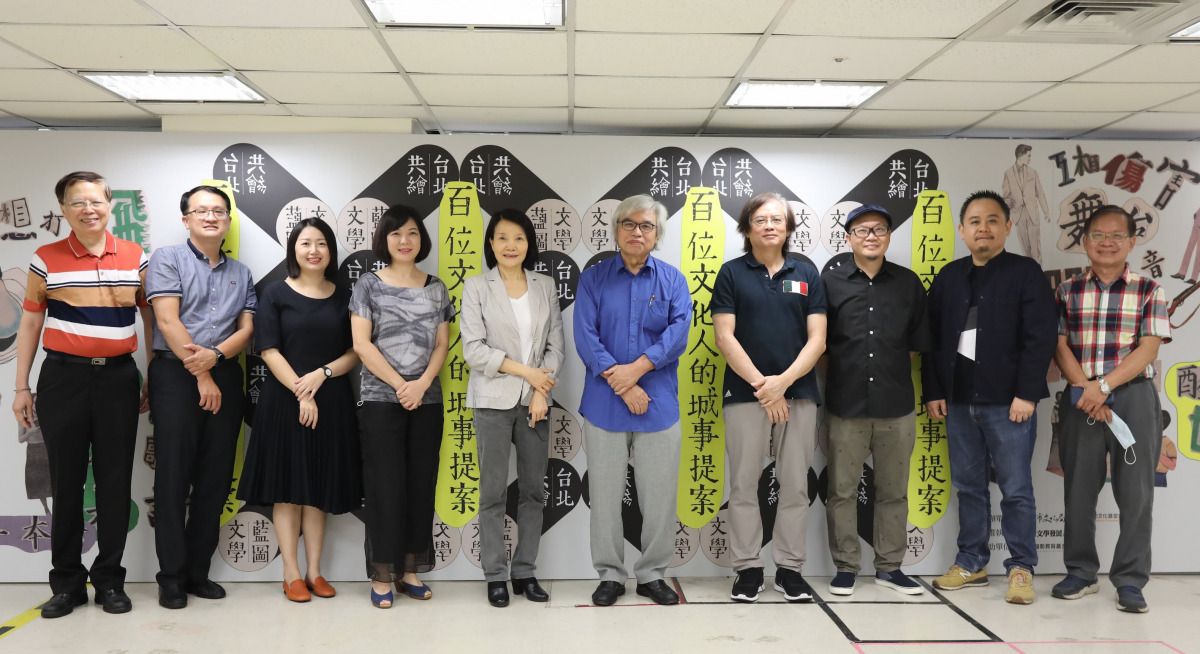
Like my work?
Don't forget to support or like, so I know you are with me..
Comment…